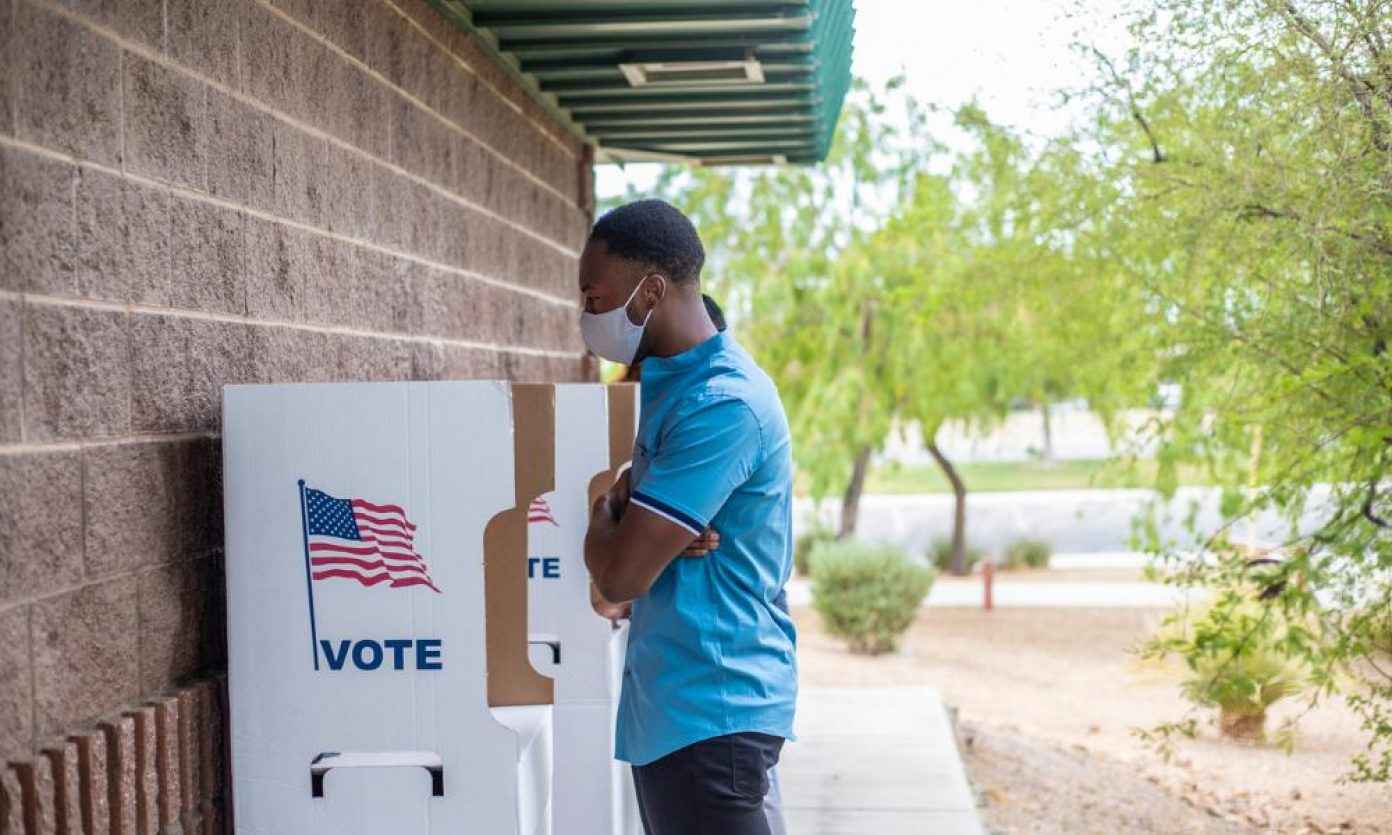Lessons from the 2020 Election Cycle
May 5, 2021
Overview
As the United States marks one year of the COVID-19 pandemic, which has resulted in more than 500,000 deaths and a historic economic recession, the Network has joined with public health law partners to produce a report offering a new assessment, by 50 top legal experts, on the U.S. policy response to the crisis. This new report, COVID-19 Policy Playbook: Legal Recommendations for a Safer, More Equitable Future, presents a timely examination of policy challenges and opportunities in light of the pandemic and offers concrete suggestions for immediate and long-term changes to better serve the health of the nation.
In this Q&A, Dawn Hunter, deputy director of the Network’s Southeastern Region Office, discusses some of the key elements in the chapter she authored, Lessons from the 2020 Election Cycle, for the Report.

Q: Can you summarize some of the significant impacts of the 2020 election cycle on both voting and public health that you examine in your chapter?
A: Throughout the primaries, there were concerns about how to safely conduct elections to minimize the risk of COVID-19 while also ensuring voter participation, but states adapted and successfully held safe elections by expanding options available to voters through measures like expanded absentee ballot eligibility, extended voter registration deadlines, and strengthening early and absentee voting options. The safety and security of the 2020 elections were due in part to collaborative efforts with diverse partners and stakeholders and strong community organizing.
However, many changes made to facilitate voting were temporarily authorized under emergency authority granted due to the pandemic. Some state legislatures are making permanent changes to ensure and expand access to the ballot (e.g. Delaware, Kentucky, Virginia) while others have introduced or enacted more restrictive voting laws (e.g. Georgia, Florida, and Texas). At the same time, hundreds of lawsuits involving election administration were filed pre- and post-election, with one of the main questions being whether changes to election administration made under state emergency authority were constitutional.
The 2020 election cycle also highlighted two other important issues. The first is that public health and elections officials experienced threats to their safety, and this has led to turnover in the public health infrastructure and undermined the credibility of elections officials of both parties. The second is that the Census was also conducted in 2020, a reminder of the importance of elections for determining representation and the need for standards to ensure equitable redistricting that will result from updated census counts.
Finally, the 2020 election cycle was successful from a public health perspective because it resulted in changes to law and policy that increased voter participation, which is linked to better individual and community health, and resulted in some significant public health initiatives being passed. One of the biggest lessons is that facilitating voter participation is one way to build power in communities, and the federal government and state legislatures should take action to strengthen participation, build civic infrastructure, promote civic education, and equip communities to engage in the democratic process.
Q: What recommendations do you provide in your chapter for how policymakers can protect the right to vote, facilitate voter participation, and ensure the continued safety and
security of future elections?
The Biden administration should:
- Develop an infrastructure to include voices from the community in policy development and implementation.
- Invest in civic infrastructure and education (the administration has taken a step by issuing an Executive Order on March 7, 2021 to promote voter education, access, and participation through federal agencies).
Congress should:
- Ensure sustained funding for elections administration.
- Enact minimum elections standards including automatic, same day, and online voter registration; national no-excuse absentee voting; a minimum nationwide early vote period; and preventing the purge of eligible voters from voter rolls.
State legislatures should:
- Eliminate felony disenfranchisement laws.
- Set fair standards for drawing electoral boundaries by creating independent redistricting commissions, using algorithms, and/or establishing objective criteria for districts that preserve communities of interest and ensure racial fairness, among other factors.
- Ensure protections for elections, public health, or other public officials.
- Update state law to expand poll worker eligibility; increase incentives for poll workers; and set standards for polling place closures and consolidation that ensure that voters will still have meaningful access.
- In the absence of federal standards, enact laws that facilitate voter access and protect the right to vote.
Read the full article Lessons from the 2020 Election.
The Network for Public Health Law provides information and education about laws related to the public’s health. We do not provide legal representation or provide advice on a particular course of action.
